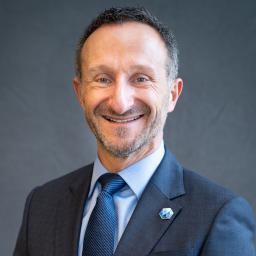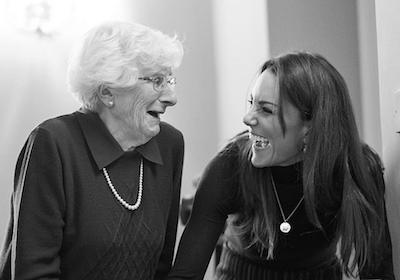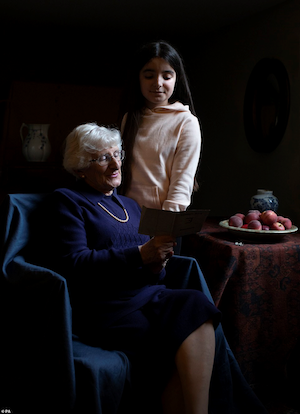As early as my second week at Prizmah, I saw first-hand the power of our Network of Jewish day schools. While getting to know a school leader, I was asked a question that reached to the core of the character of their school, and honestly was beyond my scope of knowledge. “I’ll get back to you on that,” I replied, thinking that our Prizmah team of experienced day school professionals would pull out just the right answer. But, when I shared the question with my Prizmah colleagues, instead of a “textbook” solution, their response was a list of five other schools who had recently grappled with the identical question. These peers provided that leader with better answers (gained through experience) than a single “expert” might offer. That is an example of the Network at work, and the knowledge of the field in action. There is no textbook, but there are plenty of solutions.
Being part of a Network means contributing and accessing the everyday “real-world” expertise that builds stronger schools, and a supportive, vibrant field.
In the past year, day school professionals and lay leaders have connected, shared, learned, created, and driven impact through the Prizmah Network at an astounding rate. 1100 field leaders, from over 230 schools, joined us at the March, 2019 Prizmah Conference and collectively Dared to Dream; 163 schools participated in a Prizmah Reshet group (which had 200 new members this year); 1305 resources were launched in our new digital Knowledge Center and have been accessed by thousands of page views.
Online, at in-person gatherings, through emerging partnerships with federations and national leaders in education, Prizmah’s focus on Network points us in a strong direction to support individual schools and the day school field.
We just celebrated Shavuot, acknowledging the enormous gift—matan—of Torah. When we call the holiday “z’man matan Torateinu” or “time of the giving of our Torah,” we are actually celebrating a collective experience, as Torah is referred to in the plural possessive. Rashi teaches that both the Written Law and the Oral Law were transmitted to Moshe at Sinai. While the Written Law—Torah she’bichtav--speaks in one Divine voice, the Oral Law--Torah she’be-al peh, including the Mishnah, the Talmud, Midrashim--contains multiple voices across generations. There is an inherent intricate network of diverse voices and opinions offering insight, advice, and instruction.
The Oral Law provides a model for understanding our world and addressing the challenges we inevitably encounter. When we gain access to the experience of others, when we draw on past examples to inform present action, when we debate—even loudly—about our differences, we strengthen our ability to deliver on our mission. The Prizmah Network is predicated on just such a philosophy.
For our Network to fulfill its potential demands that we create space for the myriad voices to be raised, that we construct pathways for connection among practitioners, and that we encourage portals and access to other providers of expertise.
“Do what we do best and connect to the rest” was a kind of informal mantra we used in talking about Prizmah right from launch. Convening the Network means sometimes being in the center and sometimes stepping aside so that people can connect directly. Oftentimes it means connecting to experts, providers or resources throughout the Network. Primarily, being the Network convener means making it easy to both access and provide knowledge for each other.
In the coming months, we will be concentrating our efforts on strengthening the Prizmah Network with the voices of even more day school leaders and practitioners. School leaders will be receiving information shortly about renewing or establishing their Network affiliation, while others in the field can engage by sharing resources, asking questions, and supporting the day school field. Together, we can ensure that the day school field has a living network that supports and creates tangible impact for individuals, schools, and communities, all working toward a vibrant Jewish future.





 I keep thinking about the portrait she took and what it represents. The staging and lighting of the photograph were designed very specifically by the Duchess to capture this unique moment. A survivor of World War II with her 11-year old granddaughter, light streaming in from the hopeful east, wartime artifacts (my mother’s German identity card, marked with a “J” for Jude-Jew) shared across the generations. The photograph is very much a moment in time, a moment that marks time, bridging the past with the future. The image captures the gaze of a young girl learning through the shared experience of her grandmother, committed to re-telling that story in order to learn its lessons.
I keep thinking about the portrait she took and what it represents. The staging and lighting of the photograph were designed very specifically by the Duchess to capture this unique moment. A survivor of World War II with her 11-year old granddaughter, light streaming in from the hopeful east, wartime artifacts (my mother’s German identity card, marked with a “J” for Jude-Jew) shared across the generations. The photograph is very much a moment in time, a moment that marks time, bridging the past with the future. The image captures the gaze of a young girl learning through the shared experience of her grandmother, committed to re-telling that story in order to learn its lessons. So this Tu Bishvat, while I still chuckle at the thought of my mother rubbing shoulders with royalty, I appreciate how the day’s focus on trees and marking time can catalyze a deeper appreciation for the relationship between past and future. And I give thanks, both for the trees which beautify our world, and the hundreds of Jewish day schools in which tens of thousands of Jewish futures are growing to fruition.
So this Tu Bishvat, while I still chuckle at the thought of my mother rubbing shoulders with royalty, I appreciate how the day’s focus on trees and marking time can catalyze a deeper appreciation for the relationship between past and future. And I give thanks, both for the trees which beautify our world, and the hundreds of Jewish day schools in which tens of thousands of Jewish futures are growing to fruition.